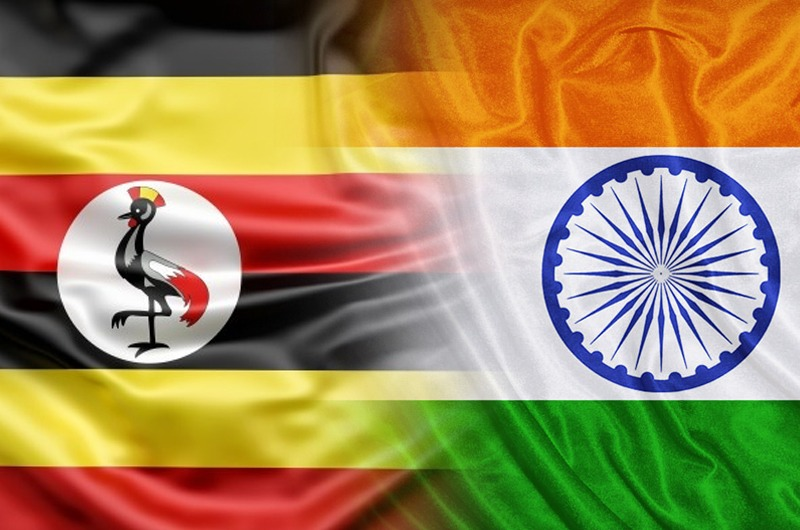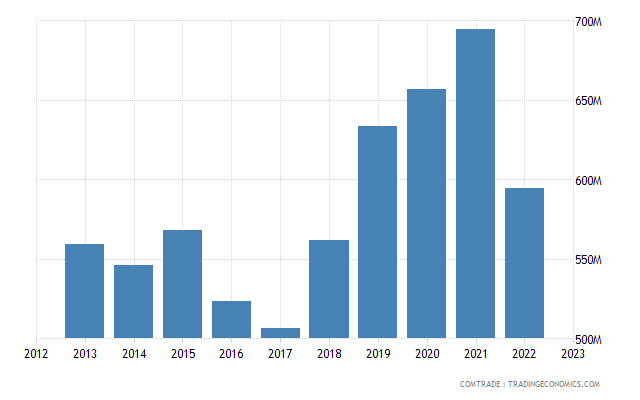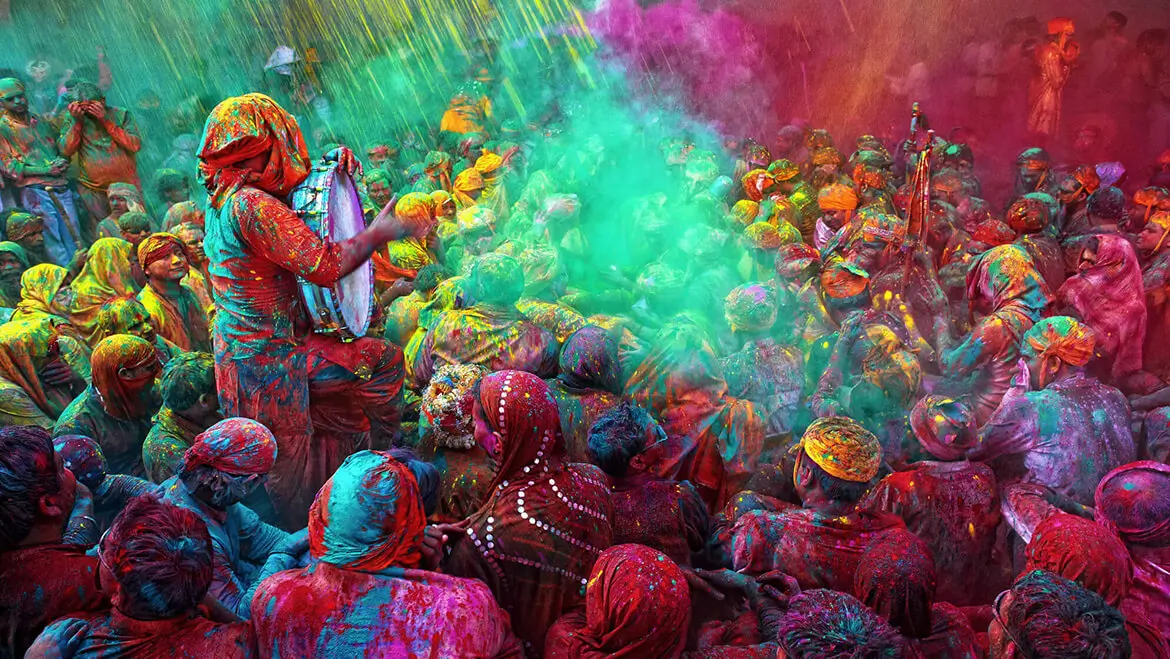Strong and growing ties between India and Uganda
India and Uganda share a century-old history, with Indians arriving in Uganda in the early 20th century. Uganda drew inspiration from India's independence struggle during its own fight for independence in 1962.

Diplomatic ties were established in 1965, and despite challenges like the expulsion of Indians in the 1970s, their return was welcomed in 1986. The relationship now covers politics, defence, economics, trade, culture, education, healthcare, and tourism.
High-Level Visits from India
High-level visits from India aim to strengthen ties, address key issues, and boost global cooperation, shaping India's foreign policy and global influence through agreements and collaborations in areas like trade, defence, climate, and partnerships.
- In February 2017, the Vice-President of India paid a visit to Uganda.
- In July 2018, the Prime Minister undertook a state visit to Uganda.
- In September 2019, the Honourable Speaker of Lok Sabha, led an 84-member delegation to attend the 64th Commonwealth Parliamentary Conference in Uganda.
- In November 2021, Minister of State for External Affairs and Parliamentary Affairs, visited Uganda for three days.
The close relations between India and Uganda are mutually beneficial. India benefits from Uganda's rich natural resources and growing market, while Uganda benefits from India's expertise and development assistance. The two countries also cooperate closely on a number of regional and international issues.
High-Level Visits from Uganda
This involves top officials travelling abroad to bolster relationships, discuss vital issues, and promote global cooperation, influencing Uganda's foreign policy and international standing through important agreements and partnerships in areas like trade and diplomacy.
- The Ugandan President visited India twice on state visits in October 1992 and April 2008, and once officially in October 2015 to attend the 3rd India-Africa Forum Summit. He has also visited India on four occasions in a private capacity.
- The Vice President of Uganda, attended the 9th CII-EXIM Bank Conclave in New Delhi in March 2013 and returned to India in March 2018 to participate in the 13th CII-EXIM Bank Conclave on India-Africa Project Partnership in Delhi. He also travelled to Mumbai to address the Uganda-India Investment Conference and met with the Vice-President of India.
- The Hon. Prime Minister of Uganda, visited India in March 2017 to attend the CII-EXIM Bank Conclave on India-Africa Project Partnership. During his visit, he also called on the Indian President and Vice-President.
- Several Ugandan ministers and officials visited India for various purposes, including participation in conferences, summits, and meetings related to sectors such as energy, health, defence, and transportation.
These visits have helped to strengthen the ties between India and Uganda in a number of areas, including politics, business, education, and culture.
India-Uganda Cooperation and Assistance
The two countries have engaged in fruitful bilateral cooperation and assistance in a wide range of areas, including defence, trade, investment, development, and education as discussed below:
- Defence cooperation
India's pivotal role in Uganda's defence sector involves training and the presence of IMATT since 2010, bolstering Uganda's defence capabilities. India's contributions also include military vehicle donations and support for a military war game centre in Jinja district, showcasing its commitment to enhancing Uganda's military strength.
- Trade and investment
Key Indian exports to Uganda include pharmaceuticals, machinery, and electronics, while Uganda primarily exports coffee, tea, and gold to India. Indian companies have made substantial investments in Uganda across sectors like telecommunications, energy, and manufacturing.
- Development cooperation
India provides significant development assistance to Uganda through Lines of Credit for electricity and agriculture, along with infrastructure development support.
- Education cooperation
India and Uganda have a strong education partnership, with Ugandan students studying in India and receiving scholarships. Indian institutions like NFSU are expanding in Uganda, deepening educational ties.
India-Uganda Trade and Investment
India and Uganda have a growing trade relationship, with annual bilateral trade statistics reflecting their economic cooperation. In recent years, the trade figures are as follows (in US $ Million):

INDIAN EXPORTS TO UGANDA
- 2018: India exported goods worth $561.82 million to Uganda, while importing goods worth $748.47 million from Uganda.
- 2019: India's exports to Uganda amounted to $576.62 million, while imports from Uganda totaled $868.37 million.
- 2020: Exports from India to Uganda increased to $655.73 million, with imports from Uganda valued at $745.22 million.
- 2021: India's exports to Uganda reached $694.56 million, while imports from Uganda amounted to $839.11 million.
Uganda benefits from India's DFTP Scheme, boosting trade. India exports pharmaceuticals, vehicles, plastics, and more to Uganda, while Uganda supplies vegetables, coffee, and other goods. Private sector cooperation and a Double Taxation Avoidance Agreement since 2004 enhance business relations.
India-Uganda Education Cooperation
India has become a popular destination for Ugandans seeking quality and affordable education. The government and private sector offer scholarships and fellowships to Ugandans to pursue undergraduate, postgraduate, and research studies in India.
India also conducts training courses for Uganda's defence personnel.
Presently, around 1200 Ugandan students are studying in Indian universities. Indian education is made more accessible in Uganda through different institutions.
To promote Indian higher education in Uganda, an educational delegation known as the "Study-in-India" Team regularly visits Kampala. The Indian Council for Cultural Relations also awards full-time scholarships to 35 Ugandan nationals annually.
Additionally, Ugandan nationals benefit from short-term and medium-term training programs under various ITEC programs of the Indian Ministry of External Affairs.
These efforts contribute to strengthening educational and cultural ties between India and Uganda.
Indian Community in Uganda
Currently, around 35,000 Indians and Persons of Indian Origin (PIOs) reside in Uganda, playing a prominent role in the economy, particularly in manufacturing, trade, agro-processing, banking, sugar production, real estate, hotels, tourism, and information technology.
The Indian community is also culturally vibrant and active, with a number of associations and organisations promoting Indian culture and traditions.
HOLI FESTIVAL TRADITION

The annual 'India Day' event is a major celebration of Indian culture in Uganda, attracting thousands of visitors from both the Indian and Ugandan communities.
The Indian community is also committed to giving back to the society they call home, sponsoring heart surgeries for Ugandan children in India, providing assistance to the homeless, and organising blood donation camps, among other initiatives.
FAQS
What is the historical background of the relationship between India and Uganda?
India and Uganda share a historical relationship dating back over a century. Indians first arrived in Uganda in the early 20th century, and India's freedom struggle inspired early Ugandan activists in their fight against colonisation. Uganda gained independence in 1962, and diplomatic ties between the two nations were established in 1965.
What are the key areas of cooperation between India and Uganda?
India and Uganda collaborate in various sectors, including politics, defence, economics, trade, culture, education, healthcare, and tourism. Their relations have deepened and broadened over the years, encompassing multiple dimensions of bilateral engagement.
How have high-level visits between the two countries strengthened their ties?
High-level visits, such as those by Indian leaders to Uganda and Ugandan leaders to India, have played a pivotal role in strengthening bilateral relations. These visits have led to the signing of agreements, collaborations, and announcements of financial support and development projects.
What is the status of trade relations between India and Uganda?
Trade between India and Uganda has been steadily growing. Both countries engage in significant bilateral trade, with India exporting various products to Uganda, including pharmaceuticals, vehicles, plastics, and chemicals, while Uganda exports items like vegetables, coffee, tea, and wood products to India.
How does the Indian diaspora contribute to the relationship between the two countries?
The Indian diaspora in Uganda, comprising approximately 35,000 individuals, plays a vital role in the economic and cultural ties between India and Uganda. They are active in various sectors of Uganda's economy and engage in philanthropic activities that benefit both communities.
What educational and cultural exchanges exist between India and Uganda?
India offers scholarships and training programs for Ugandans to pursue education in India. There is a strong presence of Indian educational institutions in Uganda. Additionally, cultural events, such as 'India Day,' promote cultural exchange and understanding between the two nations.
How do India and Uganda collaborate in the defence sector?
India conducts training courses for Uganda's defence personnel and has stationed an Indian Military Advisory & Training Team (IMATT) in Uganda since 2010. This team assists in training senior officers of the Ugandan armed forces, enhancing Uganda's defence capabilities.
Applying for Uganda e-Visas
- Step 1: Complete the online application form by providing your personal details and passport information.
- Step 2: Proceed to securely make your payment online using a credit card.
- Step 3: Check your email for the confirmation of payment and receipt of your Uganda e-Visa, which will be sent electronically.

